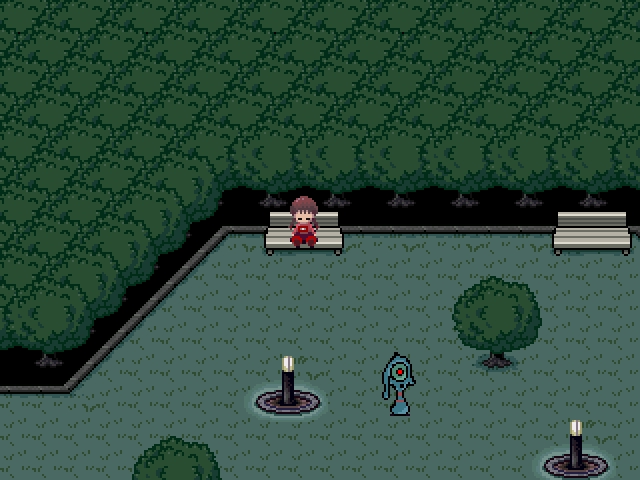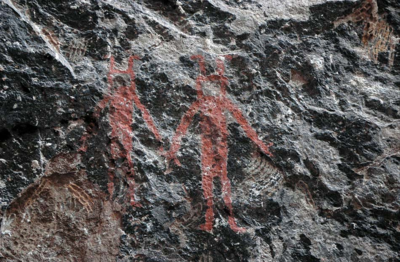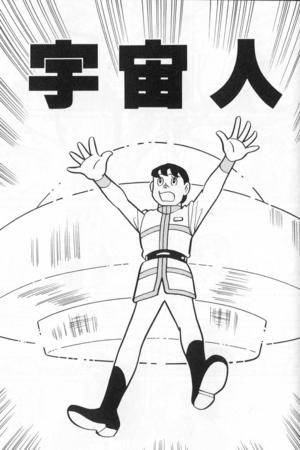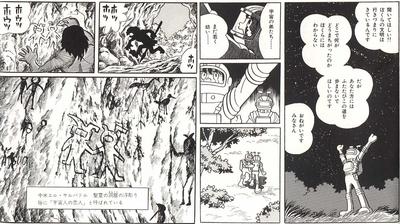>Mt.kiki No edit summary |
>Mt.kiki No edit summary |
||
| Line 76: | Line 76: | ||
→[[List of Characters|Unnamed Characters]]([http://en.wikipedia.org/wiki/Bug-eyed_monster Bug-eyed monster]?) → I am (K ・ Anh Teng?) | →[[List of Characters|Unnamed Characters]]([http://en.wikipedia.org/wiki/Bug-eyed_monster Bug-eyed monster]?) → I am (K ・ Anh Teng?) | ||
---- | |||
[http://ja.wikipedia.org/wiki/%E5%A3%81_(%E5%B0%8F%E8%AA%AC)#.E4.BD.9C.E5.93.81.E8.A9.95.E4.BE.A1.E3.83.BB.E8.A7.A3.E8.AA.AC <u>5 作品評価・解説</u>] | [http://ja.wikipedia.org/wiki/%E5%A3%81_(%E5%B0%8F%E8%AA%AC)#.E4.BD.9C.E5.93.81.E8.A9.95.E4.BE.A1.E3.83.BB.E8.A7.A3.E8.AA.AC <u>5 作品評価・解説</u>] | ||
| Line 94: | Line 94: | ||
It is not by the method of the objectification which is a general comical expression, and considered comedy-izing by expressing subjectivity as it is rather. | It is not by the method of the objectification which is a general comical expression, and considered comedy-izing by expressing subjectivity as it is rather. | ||
一人称形式は必然的にとられた形である。彼は自己に対して真面目であり、誠実であることによって、その無意味さをバクロする。私がバクロするのではなく、彼自身が、哲学的な表情で自分の首をしめてみせてくれるという仕組なのである」<sup class="reference" id="cite_ref-karuma_8-3">[http://ja.wikipedia.org/wiki/%E5%A3%81_(%E5%B0%8F%E8%AA%AC)#cite_note-karuma-8 <u>[8</u>]]</sup>と解説している。 | |||
==[[List of Characters|Unnamed Characters]]([http://en.wikipedia.org/wiki/Existence_precedes_essence Existence precedes essence])== | |||
The proposition that '''existence precedes essence''' ([http://en.wikipedia.org/wiki/French_language <u>French</u>]: ''l'existence précède l'essence'') is a central claim of [http://en.wikipedia.org/wiki/Existentialism <u>existentialism</u>], which reverses the traditional philosophical view that the [http://en.wikipedia.org/wiki/Essence <u>essence</u>] or nature of a thing is more fundamental and immutable than its [http://en.wikipedia.org/wiki/Existence <u>existence</u>].<sup class="reference" id="cite_ref-1">[http://en.wikipedia.org/wiki/Existence_precedes_essence#cite_note-1 <u>[1]</u>]</sup> | |||
To existentialists, human beings—through their [http://en.wikipedia.org/wiki/Consciousness <u>consciousness</u>]—create their own values and determine a meaning for their life because, in the beginning, the human being does not possess any inherent [http://en.wikipedia.org/wiki/Identity_(social_science) <u>identity</u>] or [http://en.wikipedia.org/wiki/Value_(ethics) <u>value</u>]. By posing the acts that constitute him or her, he or she makes his or her existence more significant.<sup class="reference" id="cite_ref-2">[http://en.wikipedia.org/wiki/Existence_precedes_essence#cite_note-2 <u>[2]</u>]</sup><sup class="reference" id="cite_ref-3">[http://en.wikipedia.org/wiki/Existence_precedes_essence#cite_note-3 <u>[3]</u>]</sup> | |||
[http://ja.wikipedia.org/wiki/%E5%AE%9F%E5%AD%98%E3%81%AF%E6%9C%AC%E8%B3%AA%E3%81%AB%E5%85%88%E7%AB%8B%E3%81%A4 実存は本質に先立つ] | |||
例えば、人間性という例を挙げ、人間性というものは存在するかもしれないが、その存在は初めには何をも意味するものではない、つまり、存在、本質の[http://ja.wikipedia.org/wiki/%E4%BE%A1%E5%80%A4 <u>価値</u>]および[http://ja.wikipedia.org/wiki/%E6%84%8F%E5%91%B3 <u>意味</u>]は当初にはなく、後に作られたのだと、この考え方では主張される。 | |||
このように、この考えは[http://ja.wikipedia.org/wiki/%E3%82%AD%E3%83%AA%E3%82%B9%E3%83%88%E6%95%99 <u>キリスト教</u>]などの、[http://ja.wikipedia.org/wiki/%E7%A4%BE%E4%BC%9A <u>社会</u>]における人間には本質([http://ja.wikipedia.org/wiki/%E9%AD%82 <u>魂</u>])があり生まれてきた意味を持つ、という古来からの宗教的な信念を真っ向から否定するもので、[http://ja.wikipedia.org/wiki/%E7%84%A1%E7%A5%9E%E8%AB%96 <u>無神論</u>]の概念の一つにもなっている。[[File:Triangle_Kerchief.png|thumb|Triangle Kerchief(Soul)]] | |||
Thus, the religious belief from the ancient times that this idea has a meaning which the human being in society, such as Christianity, has essence (soul), and has been produced is flatly denied, and it has become one of the concepts of atheism. | |||
| Line 139: | Line 146: | ||
''<span style="font-weight: normal;">[http://ja.wikipedia.org/wiki/%E8%97%A4%E5%AD%90%E3%83%BBF%E3%83%BB%E4%B8%8D%E4%BA%8C%E9%9B%84 <u>藤子・F・不二雄</u>] > [http://ja.wikipedia.org/wiki/%E8%97%A4%E5%AD%90%E3%83%BBF%E3%83%BB%E4%B8%8D%E4%BA%8C%E9%9B%84%E3%81%AESF%E7%9F%AD%E7%B7%A8 <u>藤子・F・不二雄のSF短編</u>]、[http://ja.wikipedia.org/wiki/%E8%97%A4%E5%AD%90%E3%83%BBF%E3%83%BB%E4%B8%8D%E4%BA%8C%E9%9B%84%E3%81%AE%E8%91%97%E4%BD%9C%E4%B8%80%E8%A6%A7 <u>藤子・F・不二雄の著作一覧</u>] > </span>'' | ''<span style="font-weight: normal;">[http://ja.wikipedia.org/wiki/%E8%97%A4%E5%AD%90%E3%83%BBF%E3%83%BB%E4%B8%8D%E4%BA%8C%E9%9B%84 <u>藤子・F・不二雄</u>] > [http://ja.wikipedia.org/wiki/%E8%97%A4%E5%AD%90%E3%83%BBF%E3%83%BB%E4%B8%8D%E4%BA%8C%E9%9B%84%E3%81%AESF%E7%9F%AD%E7%B7%A8 <u>藤子・F・不二雄のSF短編</u>]、[http://ja.wikipedia.org/wiki/%E8%97%A4%E5%AD%90%E3%83%BBF%E3%83%BB%E4%B8%8D%E4%BA%8C%E9%9B%84%E3%81%AE%E8%91%97%E4%BD%9C%E4%B8%80%E8%A6%A7 <u>藤子・F・不二雄の著作一覧</u>] > </span>'' | ||
''<span style="font-weight: normal;">''' | ''<span style="font-weight: normal;">'''藤子・F・不二雄のSF短編一覧Thus, the religious belief from the ancient times that this idea has a meaning which the human being in society, such as Christianity, has essence (soul), and has been produced is flatly denied, and it has become one of the concepts of atheism.'''</span>'' | ||
'''[[File:Syounen_sf_tanpen_2-fujiko_f_fujio.jpg|thumb|“少年SF短編集(2)” (2011年4月25日) | '''[[File:Syounen_sf_tanpen_2-fujiko_f_fujio.jpg|thumb|“少年SF短編集(2)” (2011年4月25日) | ||
Revision as of 05:26, 8 August 2013
Unnamed Characters(Bug-eyed monster)
Bug-eyed monster is an early convention of the science fiction genre. Extraterrestrials in science fiction of the 1930s were often described (or pictured on covers of pulp magazines) as grotesque creatures with huge, oversized or compound eyes and a lust for women, blood and general destruction. The term is now often abbreviated to BEM.
"We hitched a lift," said Ford.
"Excuse me?" said Arthur. "Are you trying to tell me that we just stuck out our thumbs and some green bug-eyed monster stuck his head out and said, 'Hi fellas, hop right in. I can take you as far as the Basingstoke roundabout'?"
"Well," said Ford, "the Thumb's an electronic sub-etha signalling device, the roundabout's at Barnard's Star six light years away, but otherwise, that's more or less right."
"And the bug-eyed monster?"
"Is green, yes."
Unnamed Characters(壁 (小説))
『壁』(かべ)は、安部公房の最初の中編・短編集。『S・カルマ氏の犯罪』、『バベルの塔の狸』、『赤い繭』(「赤い繭」「洪水」「魔法のチョーク」「事業」)の三部(六編)からなるオムニバス形式の作品。
1951年(昭和26年)5月28日に石川淳の序文を添えて月曜書房から単行本刊行された。
貧しい詩人のぼくは、自分の空想やプランをつけている手帳を「とらぬ狸の皮」と呼んでいた。ぼくはP公園で奇妙な獣を見つけた。その獣は突如、ぼくの影をくわえ逃げ去り、影を失ったぼくは目だけ残して透明人間になってしまった。
I, the poor poet, was calling the notebook which attaches its fancy and plan leather" of "raccoon dog.
I found the strange beast in P park.
The beast adds my shadow suddenly and runs away, and I who lost the shadow leave only eyes and have become invisible man.
とらぬ狸はぼくを入塔式に案内した後、目玉銀行に連れてゆき、目玉を預けろと言った。
After showing an ON tower type to a raccoon dog, it was accompanied to the eyeball bank by it, and it said "Deposit an eyeball."
狸たちにとって、人間の目玉は有害なのだと目玉銀行の管理人・エホバが説明した。
The janitor and Jehovah of the eyeball bank explained that man's eyeball was harmful to raccoon dogs.
それを拒否したぼくは、次に行った時間彫刻器の研究室で、とらぬ狸におどりかかった。
I who refused it pounced on the raccoon dog at the laboratory of the time sculpture machine performed to the next.
ぼくは時間彫刻器の箱を開けてタイムマシンで、影をとられる前の時間のP公園に戻った。
I opened the box of the time sculpture machine, am a time machine and returned to P park of the time before a shadow is taken.
そして近づいて来たとらぬ狸に向かって、手帳や小石を投げつけ追っ払った。
The notebook and the pebble were thrown and driven away toward the raccoon dog not having approached.
- ぼく
- 貧しい詩人。名前はK・アンテン。
I am
a poor poet.
Names are K ・ Anh Teng.
※I who lost the shadow leave only eyes and have become invisible man.
→Unnamed Characters(Bug-eyed monster?) → I am (K ・ Anh Teng?)
また安部は、主人公・S・カルマ氏について、
「このナイーブで平凡な、わが主人公は、私の考えでは一種の実存主義者らしい。
Seemingly this naive and common hero of my is a kind of existentialist in my idea.
私は彼をなるべく行動にそって具体的に描きながら、同時に彼が理念を行動化する道すじを表わすようにつとめた。
I endeavored simultaneously that he expressed the route which acts out an idea, drawing him concretely along with action if possible.
一般的な喜劇的表現である客観化の方法によってでなく、むしろ主観をそのまま表現することで喜劇化することを考えたのだ。
It is not by the method of the objectification which is a general comical expression, and considered comedy-izing by expressing subjectivity as it is rather.
一人称形式は必然的にとられた形である。彼は自己に対して真面目であり、誠実であることによって、その無意味さをバクロする。私がバクロするのではなく、彼自身が、哲学的な表情で自分の首をしめてみせてくれるという仕組なのである」[8]と解説している。
Unnamed Characters(Existence precedes essence)
The proposition that existence precedes essence (French: l'existence précède l'essence) is a central claim of existentialism, which reverses the traditional philosophical view that the essence or nature of a thing is more fundamental and immutable than its existence.[1]
To existentialists, human beings—through their consciousness—create their own values and determine a meaning for their life because, in the beginning, the human being does not possess any inherent identity or value. By posing the acts that constitute him or her, he or she makes his or her existence more significant.[2][3] 実存は本質に先立つ
例えば、人間性という例を挙げ、人間性というものは存在するかもしれないが、その存在は初めには何をも意味するものではない、つまり、存在、本質の価値および意味は当初にはなく、後に作られたのだと、この考え方では主張される。
このように、この考えはキリスト教などの、社会における人間には本質(魂)があり生まれてきた意味を持つ、という古来からの宗教的な信念を真っ向から否定するもので、無神論の概念の一つにもなっている。
Thus, the religious belief from the ancient times that this idea has a meaning which the human being in society, such as Christianity, has essence (soul), and has been produced is flatly denied, and it has become one of the concepts of atheism.
Unnamed Characters(Holy Spirit Grotto)
Morazán y los artistas de un pasado remoto http://www.fronterad.com/?q=morazan-y-artistas-pasado-remoto @fronterad ISSN: 2173-4186 © 2013 fronterad. Todos los derechos reservados.
Unnamed Characters(宇宙人 (藤子・F・不二雄))
「宇宙人」(うちゅうじん)は、藤子・F・不二雄(発表時は藤子不二雄名義)のSF漫画。
"Aliens" (inside Utyuu-jin) is the SF comics(it is the Fujio Fujiko name at the time of an announcement) of Fujiko F. Fujio (藤子・F・不二雄 Fujiko Efu Fujio?)
藤子・F・不二雄 > 藤子・F・不二雄のSF短編、藤子・F・不二雄の著作一覧 >
藤子・F・不二雄のSF短編一覧Thus, the religious belief from the ancient times that this idea has a meaning which the human being in society, such as Christianity, has essence (soul), and has been produced is flatly denied, and it has become one of the concepts of atheism.
| ※1 1978年(昭和53年) | ↑ ↓ | ※2 | ||||||||||
| ▲ | タイトル | 掲載誌 | 初期 | 全短 | FF | 叢書 | 文庫 | 究極 | パ版 | MF | BC | 大全 |
|---|---|---|---|---|---|---|---|---|---|---|---|---|
| 055 | 宇宙人 | 朝日ソノラマ『マンガ少年』1978年01月号 | S1 | 2 | 少1 | — | 中3 | — | 4 | 03 | — | 少2 |
※2 “少年SF短編集(2)”(2011年4月25日). 2011年4月25日閲覧(free view site)
http://plaza.rakuten.co.jp/neoreeves/diary/201106220000/
Copyright (c) 1997-2013 Rakuten, Inc. All Rights Reserved.







